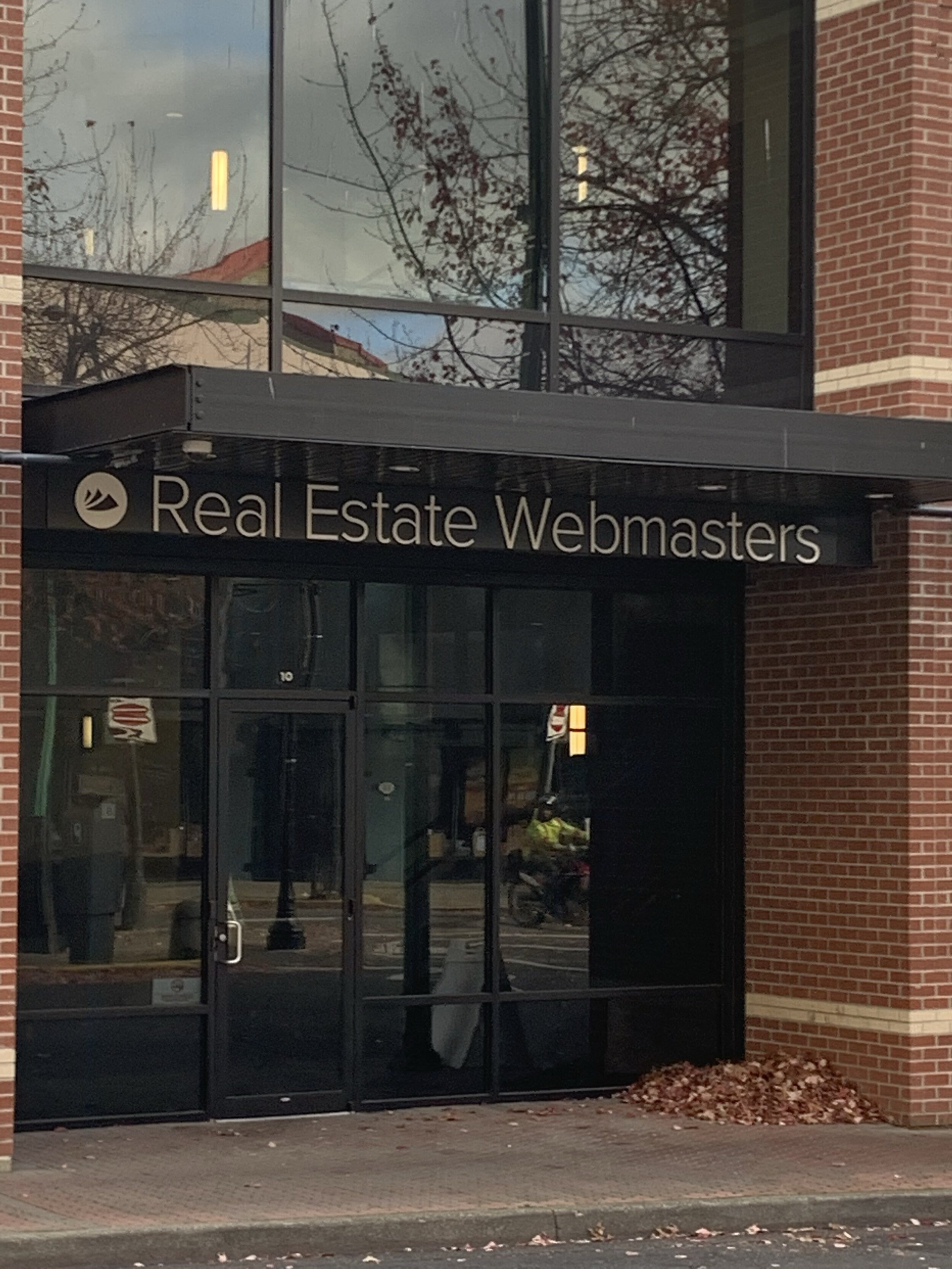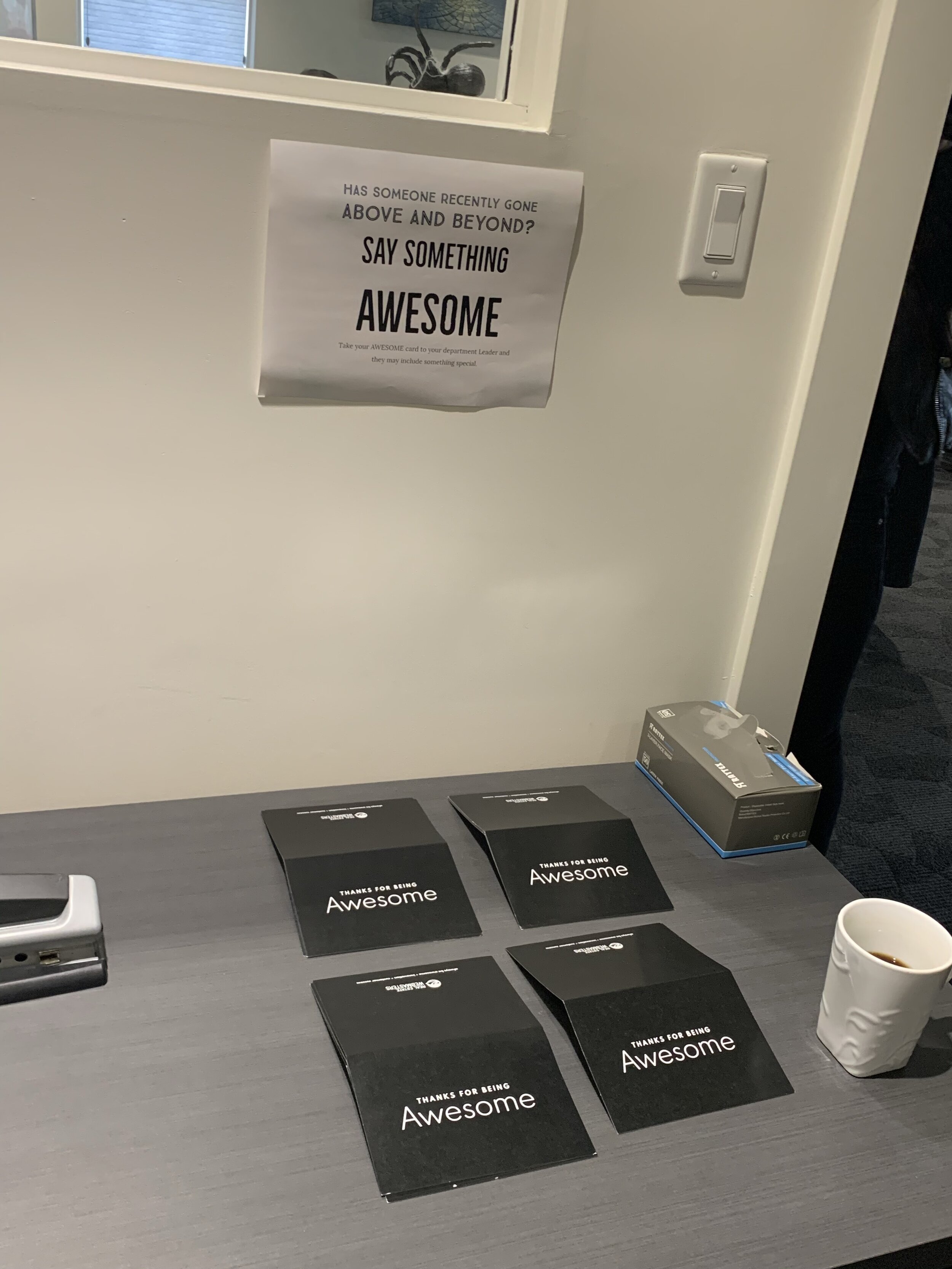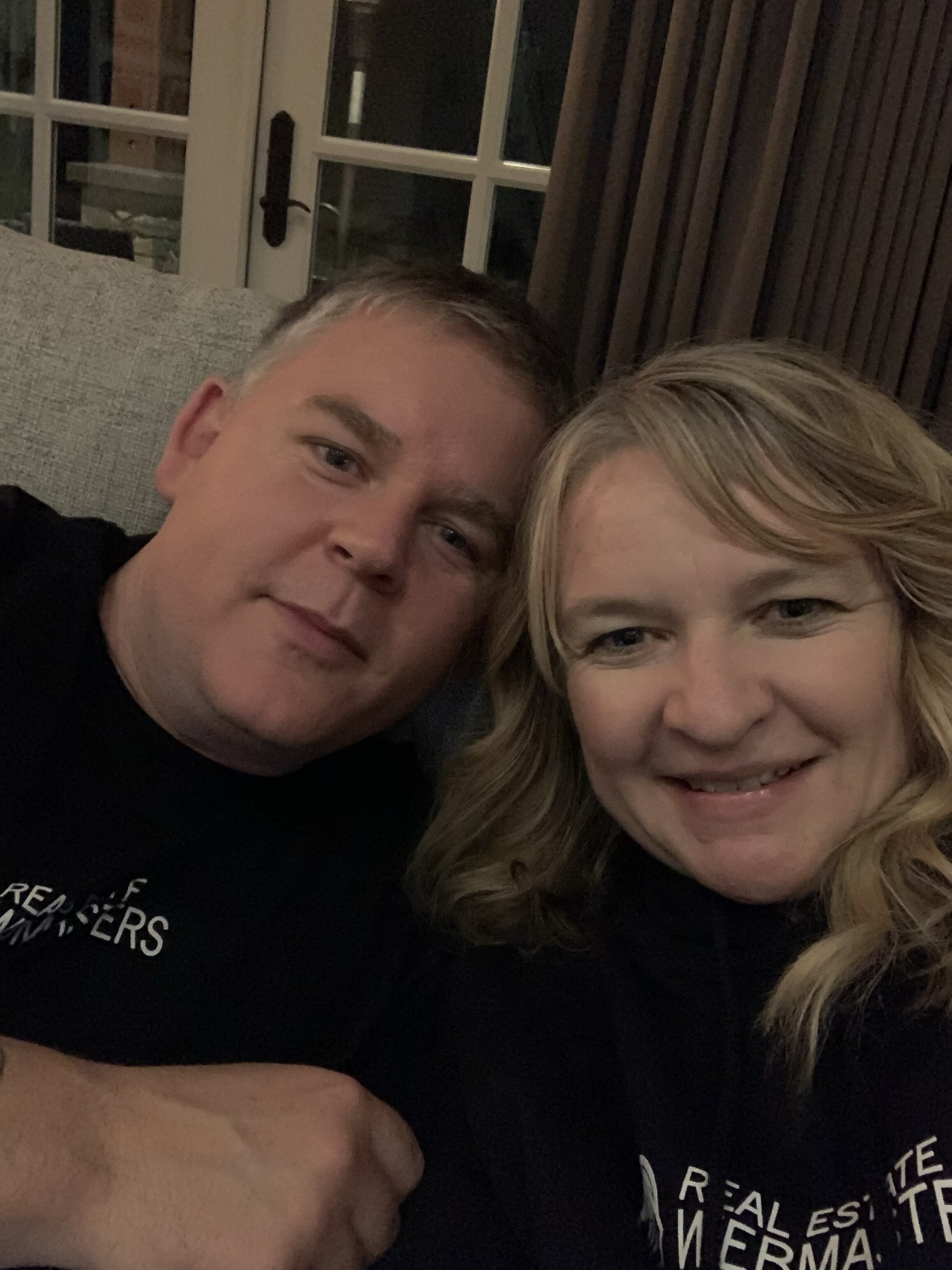Hey Real Estate New Kid…you need to know all of this.
Join us as we tour nearby homes for sale while discussing how to set showings, lockboxes, safety precautions and talking points that are necessary for every Realtor to be aware of.
Sweat the Details: Nest Realty Interview with Greg
Our friends at Nest Realty (an independent real estate brokerage in the Southeast) have been recording a podcast called Sweat the Details this year and recently asked our very own Managing Broker and Chief Technology Officer to join them and talk shop about the latest trends in the industry and how we approach work life at West + Main Homes.
We appreciate the opportunity to share our insights with colleagues across the country and thank the Nest Realty team for their collaboration and support through the years.
Tech, Relationships, Sharing and Showing Up
26 minutes
Greg Fischer, Chief Technology Office at West + Main Homes in Colorado joined us and we had a great discussion ranging from tech to relationships, the role of the realtor, and community, and he gave one our favorite “what detail do you sweat” answers we’ve had so far.
- The role of technology in real estate in 2020
- Community and relationship marketing and tech
- Overrated and underrated tech
- What tech we’d like to see in real estate
- Collecting and sharing data to benefit Realtors, clients, and the consumers
- That time when we had access to lockbox data
- Grubhub’s use of data
- Indie brokerages and big box brokerages
- Building and facilitating culture
- Showing up
- Being selective in who you hire, and having standards
- Indie brokerages in the next five years; the need for access to capital
- How do you come up with new ideas?
- What detail do you sweat?
Sweat the Details by Nest Realty
On Sweat The Details by Nest Realty, Jonathan Kauffmann, Keith Davis and Jim Duncan of Nest Realty sit down with experts and industry leaders to discuss the details - from design and data to branding and technology - that are influencing real estate and today’s agents. It's inside baseball for the real estate brokerage industry.
How to be an ethical agent in an age of rampant housing discrimination
In the wake of the 'Newsday' findings, Realtor leadership has shown that change won’t come from the top down. It’s up to individuals to make change
Repost from Inman News
BY CHAVI HOHM
The real estate industry is at a crossroads. A shocking report about racism within our industry has fallen on deaf ears among our leadership. Meanwhile, the Attorney General of New York State is now investigating the reports of discrimination by Realtors in Long Island exposed in Newsday.
The impact of the investigation on our industry will not just be isolated to New York, but will also ripple across the country. We’ve seen this before in other industries. Remember the good old days of taking Taxis before ride-share companies were everywhere?
In past years, studies on racism in the taxi industry confirmed what many black people already knew: They were being denied service based on their skin color.
This racist pattern and a more general discontent with taxis gave ride-share companies the edge needed to disrupt the whole taxi industry. The same pattern of denial through racist tactics is happening in our industry.
The question is: Are Realtors going the way of taxi drivers?
Let this be a wake-up call
In real estate, it can sometimes be harder to know (let alone prove) when discrimination has taken place. Now, the cat’s out of the bag. Newsday released the results of a three-year investigation a couple of weeks ago, proving rampant housing discrimination by Long Island Realtors.
Audio and video recording from three years of testing showed almost half of the Realtors treating black buyers and sellers differently than white peers. To be precise, according to Newsday’s findings, 49 percent of black clients, 39 percent of hispanic clients and 19 percent of Asian clients faced discrimination.
In many cases, there is outright video footage of Realtors being blatantly biased, including Coldwell Banker Residential Brokerage agent Rosemarie Marando, who when asked by a buyer about an area that is more diverse said “Follow the school bus, see the moms that are hanging out on the corners.”
The story is still developing, however, as much of the real estate industry’s response has been to deny that an issue exists. Despite clear evidence and sound methodology by Newsday’s testers, leadership in our industry is doubling down on denial. On Nov. 20, regular Inman columnist Jay Thompson summed it up nicely:
“Denial is a powerful thing. There is no doubt that some started reading this very column, and clicked away as soon as they realized I’m in agreement with the study’s findings. I do not doubt for a second that racism and discrimination are alive and well in our industry.
What makes a runner in a race strive to run harder and faster? Peer pressure, ...
“Racism and discrimination that is certainly not limited to Long Island.
“If you don’t believe this investigation, if you don’t believe discrimination happens daily in your backyard, then you need to wake up and secure yourself a seat on the next train headed out of Fantasyland.”
Apparently, the real estate industry learned nothing from the taxi industry’s checkered history with racism. Realtor leadership cannot seem to produce even a talking point emphasizing that we must do more to ensure racial equity in our business, let alone offer plans, guidance or potential solutions.
Racism in real estate happens everywhere
Some in the real estate industry are dismissing this report as a Long Island situation, but it is not isolated. Housing discrimination occurs in every market, often in insidious and backhanded ways.
And it happens here in liberal Seattle.
I was recently touring with our team member Remington in Madrona, an area he tours all the time.
I’m white, and Remington is not. I walked out of one house first, and the agent holding the broker’s open turned to Remington and said, “Do you even have anyone who can afford to buy this house?”
I was appalled. Remington said, “It happens all the time and I just try to ignore it.”
Meanwhile one of Remington’s good friends lived down the street. If one of us were more likely to have a buyer for the house, it would have been Remington.
But these incidents aren’t limited to just agents being dismissive of our non-white team members.
We tour in our own neighborhood regularly. We walked into an open house one day, and a young agent was hosting the open.
When a random white buyer came into the home and asked why the home was priced so low the agent said, “Well, the home is ‘hood’-adjacent so … ” Yes, the agent was white. To this young man, my diverse community was a “hood” with “issues,” which is a not-so subtle way of saying, “Black and brown folks live here, so it may not be safe.”
These stories are not isolated events.
How often do we have to explain that our buyer with an Asian last name is not an investor from out of the country? Or listen to other agents openly steer folks into certain neighborhoods where they think they should live based on the color of their skin or economic status?
How often do neighbors start to call the police because they see an African American person showing a house? And the examples go on.
Why is the real estate industry not doing anything about the racism in our ecosystem?
Those who make and enforce the rules are the same people who are part of the problem.
On a thread in one of Jay Thompson’s Facebook posts, someone named Tony Arko, who, based on the Facebook profile attached to the commenter, appears to be the managing broker at United Real Estate and a former chair of the Dulles Area Association of Realtors in Virginia, showcased lots of bigoted opinions including discriminating against transgender people.
The one item that is especially disturbing is the note he made: “Newsflash, 99,9% of all people prefer their own race. Not discrimination, fact.” Hmm … is he saying that only white people should sell homes to other white people?
Let’s not mince words: It is illegal to discriminate against people in real estate because of their race — period. It’s been illegal at the federal level for 50 years now. But a bigoted Facebook post doesn’t prove that an individual actually kept someone from getting housing, and local Realtor associations will not enforce their own code of ethics unless you can prove that someone was denied housing.
Why won’t the industry change or address racism?
Marguerite Martin wrote a blog post on LinkedIn on this issue. “87% of real estate agents are white. 98% of the land in the United States is owned by white people.” Martin goes into detail about how the passive and overt systems we have constructed within this industry ensures that mainly white people are buying homes from other white people. White people benefit when we keep the current system moving forward. Hence there is no real pressure to change our practices.
Realtors risk being obsolete by not changing to address racism and discrimination in our industry
Uber became an existential threat to the taxi industry not because it had an app, but at least in part because there were well-known incidents of racism by the taxi industry. The “Hailing While Black” poll found that 62 percent of black Chicagoans and 55 percent of white Chicagoans believe minority communities are discriminated against by taxi service providers.
People living in urban areas (us included) flocked to Uber because we knew they would pick us up and take us where we needed to go. For years we never took a taxi because we lived in a more diverse neighborhood and knew they would not pick us up from our house. As soon as Uber came along, it all changed.
The real estate industry needs to take the Newsday article seriously, and it needs to do it now. The Attorney General of New York State is looking into the cases of discrimination on Long Island. The same Attorney General that has taken on Juul, WeWork’s President and the President of the United States. She takes on cases she knows she can win. Meanwhile the industry remains silent on this issue and hopes it will go away with the next news cycle.
Redfin is one of the few companies in real estate that has mandatory unconscious bias training: “All Redfin employees complete an unconscious bias training. This training identifies common biases and stereotypes that can influence hiring decisions and customer interactions and provides strategies to mitigate them.”
Whether we’re aware of it or not, we all have unconscious biases formed by our personal life experiences. While recognizing and talking about our biases can be uncomfortable, this dialogue is critical for creating an open culture where assumptions can be challenged.” Redfin understands that the next generation buyer and seller will not use a company with a known ethical issue.
Jay Thompson, Marguerite Martin and a few others are sounding the alarm because they love this industry and want us to do better. It’s hard to change an industry when the leadership is part of the problem. People of color need to have more than just “a seat” at the table, they need to be 50 percent or more of the table. For that to happen we all need to be leaders on this issue — now.
You need to become the leader to change racist practices in our industry
The Newsday article has been out for three weeks at this point. The way leadership is handling these clear incidents of racism is by pretending they don’t really exist. Or hiring “consultants” to craft a response.
Team Diva is licensed under a Coldwell Banker Affiliate in Seattle. Our company has barely noticed the Newsday article. In addition, we have reached out to two elected officials on our Seattle King County Association of Realtors board and no one seems to think it is an issue or an area where they need to provide guidance to the larger organization. Dale Chumbley, the president of our state association, did put out a notice to all Realtors in Washington. Unfortunately that notice did not make it down to the rank and file.
How to be a modern ethical agent in a time of denial
Clearly, change will not come from the top down in our industry. It is up to all of us to be individual leaders on this issue. Here are some simple steps to help you breakthrough the barriers that exist in all of our local markets.
1. Read White Fragility: Why It’s So Hard For White People To Talk About Racism
The bottom line is that white people stay within their white cultures, even if they are LGBTQ. Rarely do they go outside of their world to truly understand other people and their experiences. Hence the level of denial that we are seeing is a direct result of that hidden bias we all have for people that are not like us.
2. Understand unconscious bias
Everyone holds unconscious beliefs about various social and identity groups, and these biases stem from one’s tendency to organize other people into categories: She is Asian. He is white. They are poor. And it goes on. Most people are not inherently bad. But people do allow themselves to stay in their comfort zones, where they are free to discriminate without an awareness around that discrimination. And this is what needs to change. And it needs to change now.
3. Hire and support black and brown agents and managers in this industry
Only 4.4 percent of agents in this industry are African American. African Americans have endured the bulk of housing discrimination throughout history. As a result, they come with less family housing wealth than other communities. Traditional “work your sphere” processes do not work for communities where they are the first person to graduate college in their family. Getting started in real estate is expensive, and it is important to understand not everyone is on an even playing field.
4. Lean in on conversations of stereotyping and unconscious bias in your office
Once again, white people segregate themselves into their own community. They go to school with mostly white people. They work with mostly white people. A lot of people do not have a real friend who is from a different class, culture or community then themselves. Hear something, say something. People are not going to change because we sit politely minding our own business.
5. Pressure our leadership to do a better job training agents
Millennials just became the largest generation. They make buying choices that feel ethical and fair. They will not work with people that do not share their value. We are at a risk of having disruptors like Redfin and Compass take over market share with this group of homebuyers and sellers because we as an industry are incapable of changing our attitudes around race and equity. Redfin cares about housing rights and equality. It has hired more people of color than any other organization. It is 100 percent committed. Coldwell Banker cannot even put up a Pride Flag in their marketing around LGBTQ Pride season.
6. Be a Rosemary Buerger and get on the board at your local association
As soon as the Newsday article came out, North Carolina real estate agent Rosemary Buerger worked with her local association to make sure it was a known issue and that they needed to do something. We need more leaders like Buerger who understands the big picture and is willing to make waves to save our industry.
7. Commit to helping 2-3 first generation homebuyers find their first homes
The only way we are going to move the tide and increase homeownership with diverse communities is by helping the first generation homebuyer get their first home. There are down payment assistance programs in many states including Washington state.
Working through these programs requires a very skilled agent who will take the time to manage the process. Commit yourself to helping someone in 2020 to have a home to pass down to their kids.
The real estate industry needs to make a commitment to be an ethical environment for all homebuyers and sellers, or they risk going the way of the taxi cab industry.
We can commit to change, or change will happen to us through lawsuits, disruption and distrust by millenials and Gen Z. And let’s be honest: Facebook was a big change for most Realtors.
Having some hard conversations with ourselves around unconscious bias and racism is going to be tougher.
Chavi M Hohm is the leader of Team Diva at Coldwell Banker Bain in Seattle. Connect with her on Instagram or Twitter.
Loyalty in Real Estate Tech - Is There Even Such a Thing?
Yes, there is loyalty in Real Estate technology.
And it’s VITAL to the success of your career, your team, your brokerage, your value + your future.
Here’s the thing: In our age of fast-moving sales, growth, change + tech…it has become super commonplace, and even expected, to jump ship every time a fancy life raft floats by.
Whether you are an agent distracted by bright + shiny tools and subjected to auto-recruiting texts on a non-stop basis, or you are a brokerage being stalked by fancy, fast-talking franchise sales guys offering you free trips to New York or New Jersey, it’s really the same game, pressure + pitch:
“The brokerage boat you’re on isn’t good enough, the ocean is giant and you’re a small fish…you obviously can’t survive without whatever it is we are offering — even if it’s basically a bunch of chum.”
OK, this Colorado girl is done with the sea references, but you get where I am headed here…the temptations to buy something new, to invest in the latest, greatest thing being sold from a stage by a smooth-talking rep, whether they are in a zip-up hoodie + sneakers or a tailored 3-piece suit, are endless, relentless and pretty much impossible to avoid.
I’ve been on this track for a long time — I started out in Real Estate as a software marketer and sometimes booth rep, handing out swag and setting appointments at big RE conferences. I moved into Residential Sales because I wanted to learn how Realtors think — so that I could sell them more bright + shiny tools.
And then, I fell in love with this industry. Turned out, I was a Realtor at heart…and I love, love, love the people who in turn love our place in this universe, the people who serve our communities, make home ownership dreams come true, protect those investments, and love on their clients with all that they have.
I also fell in love with the vendors who serve those Realtors and allow them to focus on their clients.
One of those vendors is Morgan Carey and his dream team at Real Estate Webmasters.
Morgan and I have kind of grown up in this industry, together.
We both started out shiny-faced and starry-eyed, seeing the potential for this marketplace and also knowing that we could have a hand in improving it, and, frankly, profiting from it.
Along the way, we have each navigated market shifts, re-positioning, re-thinking and course adjustments.
When my partner, Madeline Linder, and I launched our brokerage West + Main Homes almost 3 years ago we didn’t know where it would go, how fast it would grow, or what it would need. We were focused on brand messaging + our agent offering, not our tech stack or online presence, and figured that we would sort it all out later and invest in quality tools and platforms when we could.
Morgan was not having it. He messaged me and said — no way are you launching this company without the best website + CRM — and he made that happen for us. Leads started flowing in even faster than interview requests, and West + Main quickly grew to 4 locations and over 100 agents.
Real Estate Webmasters + West and Main Homes
I’m so proud to announce that REW has just launched the new WestAndMainHomes.com — providing not only the best home and property search tools to the public, but also the most efficient, usable and engaging tools for our agents.
My recent visit to REW headquarters in Nanaimo as part of their new #RelationshipsMatter campaign was so amazing…from exploring this special city which Morgan and his family have personally committed to supporting + growing, but also the REW campus, where I got to sit with the Design + Development teams to expedite and personalize the process of updating our website — was nothing short of spectacular. I have always appreciated the level of support that REW provides, but seeing them in action and getting to know several members of the crew was super awesome.
Relationships really DO matter - and loyalty is priceless.
#realestatewebmasters #relationshipsmatter #westandmainhomes
Things That Won’t Change for Agents Next Decade
While preparing a talk for an event a few weeks ago, I asked a friend for some inspiration to draw from as I formulated my thoughts. She pointed me towards a framework of questioning made popular by Jeff Bezos and Warren Buffet. Instead of focusing attention on what we think is going to change in the next ten years, what if we thought about what’s going to stay the same?
When thinking about this question from the lens of what real estate agents must do to be successful over the next ten years, there are only two specialties they have to take seriously.
1. Marketing
the activity, set of institutions, and processes for creating, communicating, delivering, and exchanging offerings that have value for customers, clients, partners, and society at large.
2. Transaction Management
the collaboration between brokers, clients, and partners for origination, negotiation, signatures, deadlines, compliance, and storage of documents and milestones in service of closing sales.
So instead of speculating about how tomorrow will be different, here is a list of tech that agents need to get right today to excel at marketing and transaction management for another decade.
A. Hardware
Every agent must own a premium computer and telephone. It’s impossible to do this job correctly without a fast laptop and plenty of storage. The smartphone is like a Swiss Army knife that makes calls, sends messages, executes tasks, and networks to other devices.
B. Software
Make it a priority to learn various operating systems, browsers, and applications. Master the core workflow tools and experiment with new consumer products. The assembly line for today’s agent is publishing compelling content on the web and executing contracts completely on the fly.
C. Internet
A top cellular plan and ability to tether or connect to WiFi at home, in the office, and on the road is non-negotiable. Every device online at all times and fully charged. The internet is like super glue that connects hardware to software, businesses to consumers, and people to people.
“I’m not a techie…”
Becoming an expert in why marketing is effective and what transaction management requires is a timeless challenge for all real estate agents independent of the current trends in technology.
It’s just that a lack of comprehension of current trends in technology seems like a lack of strategy in creating a business that excels in communications and getting deals closed next decade.
Greg Fischer
Managing Broker
(720) 605-3325
CRM Is a Discipline Not a Product
The latest shiny object distracting agents from core business generating activities is the obsessive quest for an all-in-one tool to automate the outreach to a living database of people referred to in the industry as CRM.
Real estate agents use a slew of CRM tools; from the domain-agnostic ones like Highrise to real-estate-friendly products you see at trade shows.
Some use proprietary company platforms. Others defer to the backend of their IDX.
What’s completely backward is that most agents are shopping for CRM solutions before they even have a thoughtful list of customers to manage a relationship with or a plan to add value.
The three components of a CRM is a list of people, a way to reach them, and caring.
1. A list of people
Everyone you know. As much contact information as possible. Contextual notes. Categories.
This list could be written in a notebook or cataloged in Excel, Google Sheets, or Trello. It doesn’t require expensive software or switching to a new brokerage flexing like it’s a tech startup.
If you think of an agent’s master-list like a coach's roster of a professional sports team, it’s like most of them start designing plays before knowing who any of the players are or how they fit in.
That’s how absurd it is to be evaluating paid software without a list in hand ready to serve.
2. A way to reach them
Phone, text, email, social media, coffee, lunch, events, at home, downtown, or the outdoors.
Most agents are conflating marketing automation with CRM. Software that sends email campaigns or property search alerts is narrow in the scope of overall agent operations.
Don’t abdicate customer relationship management to a vendor who doesn’t reflect your style or understand the nature of your individual connections with people who know you sell real estate.
Assemble a suite of communications and experiences and deploy it mindfully and on-brand.
3. Caring
Past clients get data. Prospects get products. Customers get services. Everyone gets love.
Reach the list of people you know in a way that is unscalable and authentic.
CRM is a discipline, not a product.
Appraisal requirements axed on sales of $400K and under
Approved by the Federal Reserve on Friday, the adjustment, from $250K to $400K, marks the first time in 25 years such an appraisal threshold has changed.
Following nearly a year of deliberation, federal regulators on Friday approved a long-awaited proposal to waive appraisal requirements on certain home sales of $400,000 and under.
Approved by the Federal Reserve on Friday, the adjustment, from $250,000 to $400,000, marks the first time in 25 years such an appraisal threshold has changed. The decision comes a month after the Office of the Comptroller of the Currency and the Federal Deposit Insurance Corporation signed off on the rule.
“The appraisal threshold was last changed in 1994,” according to a press release issued by the Board of Governors of the Federal Reserve System. “Given price appreciation in residential real estate transactions since that time, the change will provide burden relief without posing a threat to the safety and soundness of financial institutions.”
The increased appraisal threshold, however, does not apply to loans insured by the U.S. Department of Housing and Urban Development, Fannie Mae, Freddie Mac, the Department of Veterans Affairs or the Federal Housing Administration, according to rules issued by the Fed.
“The data are limited to first-lien, single-family mortgage originations on residential properties by FDIC-insured institutions and affiliated institutions that are not sold to [government-sponsored entities] or otherwise insured or guaranteed by a U.S. government agency,” the rules state.
The change, which will go into effect once recorded in the Federal Register, was first proposed in November by the FDIC, OCC and the Board of Governors of the Federal Reserve.
Read the official press release.
Let us know if you have questions about this information, or how it might impact your clients.
Related Links:
West + Main Agent Toolbox
Upcoming Classes + Events
Schedule a meeting with Stacie Staub
Price Your Listings Right - You're Not Working at Wal-Mart
I have been saying this for SO SO long.
Huge thank you to my friend Bernice Ross for writing this piece for Inman News…basically confirming everything that I have been shouting/preaching/explaining/defending for the last 20 years:
The rules of pricing properties are changing, yet most agents continue to use the same pricing approaches that the industry did 50 years ago. Are you making this costly mistake on your listings?
A constant topic of conversation on my company’s group coaching calls is how to price properties correctly. About two years ago, I spent some time working with an agent who had landed a prime listing in one of the nation’s hottest downtown historical areas.
The listing was priced at $849,900, was beautifully staged and had only been on the market for seven days, which is the average market time for this area.
The other experienced agents had convinced the listing agent that she should ask the sellers for a price reduction because the property next door had just come on the market for $799,000.
The agent was also concerned that the area might be peaking and that additional interest rate increases could result in declining values.
After reviewing the comparable sales as well as the new predictive analytics tools for pricing listings, I recommended that she increase the list price rather than lower it. Here’s why.
A justified price bump
The row houses in this area are predominantly two bedrooms, with one full bath upstairs and a half-bath downstairs.
This was the case for the $799,000 listing next door to the subject property.
In contrast, this agent’s listing was a three-bedroom, two-and-a-half bath withparking, a rarity in this area where most residents fight for a space on the street. Clearly, the $50,000 price differential was more than justified.
When I checked the price on Weiss Analytics (an artificial intelligence solution that uses hundreds of factors to price properties, not just MLS and public records) plus the Zillow comps, they were all greater than the current list price. Furthermore, Redfin’s algorithm put the probability of the property selling in the next four days at 70 percent at the current price.
The Weiss Analytics tool also predicted that this property would increase by 3 percent this year. Furthermore, because of the re-gentrification going on in this area, the property was predicted to outperform the overall market area by 5 to 8 percent over the next five years.
While all the facts above do matter, there was one even more important reason for increasing the price. It’s a major pricing error that thousands of agents make daily.
A small but costly mistake
To understand the exact nature of this mistake, I searched Austin homes for sale on realtor.com with no price parameters. The following prices came up for the top ten new listings:
$400,000
$524,999
$1,095,000
$1,775,000
$499,999
$329,900
$574,900
$252,000
$279,900
$274,900
Can you spot the $1 and the $100 pricing mistakes?
Of all the listings, only the property priced at $400,000 was priced to accommodate how people searched in 2017 rather than relying on the 50-year old approach of pricing the property $1 to $100 under the next price point.
(The $1 mistakes include $524,999 and $499,999, and the $100 mistakes are $329,900, $574,900, $279,900 and $274,900.)
A new pricing strategy
The agent I spoke with had made a $100 pricing error by pricing her listing at $849,900.
The reason becomes obvious if you go to realtor.com on your mobile device and look at the pricing parameters it gives you for a search. Here’s what I pulled up:
$120,000
$250,000
$350,000
$450,000
$600,000
$700,000
$800,000
Zillow, in contrast, uses a slider, but the numbers that come up are still multiples of $10,000.
Granted, some MLS systems allow you to search by specific prices, but a huge proportion of the traffic is searching on realtor.com and Zillow.
Given how many searches take place on mobile devices, if you price your property at $499,999, that one dollar difference can cost you 50 percent of your potential buyers. The reason is that those people who are searching for homes priced at $500,000 to $550,000 will never see your listing that is priced at $499,999.
After examining all the data on this property, $860,000 seemed to be the best value estimate. The question is, however, do you price at $860,000 or do your drop it to $850,000 to capture those buyers who are looking in the $800,000 to $850,000 range?
It was my recommendation that she go back to her clients armed with all the data and an explanation why increasing their price by $100 was a smart move in terms of mobile search.
To help her sellers understand why she was making this move (plus any agents who might criticize her odd price increase), I suggested that she share the predictive analytics data showing the potential for greater appreciation in this neighborhood as compared to several of the other market areas nearby.
To provide your buyers with the maximum amount of exposure, price your listings where they are straddling price points in multiples of $10,000 rather than using the antiquated approach of choosing list prices that end with $900, $95,000, $99,000 or the worst error of all, the one-dollar mistake of $99,999.
Bernice Ross, CEO of RealEstateCoach.com, is a national speaker, author and trainer with over 1,000 published articles and two best-selling real estate books. Learn about her training programs at www.RealEstateCoach.com/AgentTrainingand www.RealEstateCoach.com/newagent.
The Big Brokerage Bounce
As someone who has only worked at 3 brokerages throughout my entire Real Estate career, I never really understood the motivation to keep switching brokerages, often to just end up switching back, or switching again.
As soon as I got my Real Estate license, I also had my second kiddo…so I have to admit, I wasn’t “all-in” nor did I think I would be - like many Realtors, I had applied for a license so that we could save money on our own purchases and investments, and because it seemed like a pretty easy side-hustle. (Ha!) Anyway, I joined a really small firm that I think only had 4-5 agents on its roster, and as far as I can remember, they were all of the same motivation/mindset.
There wasn’t a lot of training provided, but I did a lot of hands-on learning while hustling foreclosures in the Dark Times (otherwise known as the Recession). After a couple of years, my business had unexpectedly grown, and I found myself in the position of actually needing a team - so I talked my mom (a natural salesperson) into getting her license and helping me while I had a couple more babies and our business continued to grow.
I also decided that instead of becoming an Employing Broker once I hit that 2-year mark as I had planned, I needed the support and people of a little-bit bigger brokerage, and long story short, I literally stumbled into the perfect place and ended up transferring my license shortly thereafter.
Flash forward 10 years, 100s of transactions, a move into brokerage management…and here I am, almost 3 years into owning an indie agency, West + Main Homes.
One of the most fascinating things that I have had the opportunity to experience first-hand is the ever-tempting Brokerage Bounce…agents who move brokerages quickly + regularly. It’s tough not to take those moves personally, but I’ve learned that Realtors really only have a small handful of reasons why they choose to jump from ship to ship, and not a lot to anchor them onboard, no matter the business model or the offering.
Promises, promises. Brokerages that are dependent on a constant flow of agents to keep their pipelines flowing are apt to make a lot of promises - whether it be company-provided client introductions (leads), pain-free transactions, various assortments of marketing campaigns and collateral, or the biggest one - TECHNOLOGY. Technology that promises to sell houses for you, because that’s the dream, right? To sell houses without having to actually sell houses? That would make me want to jump ship, too.
Greener grass. When you’re not selling as many properties as you thought you would, or when it seems like your friends at XYZ and 123 Real Estate are growing their production more quickly than you are, it’s easy to assume that there’s something magical in the water across town, across the street, or even across the hallway - and that if you drink from that same fountain your business will magically grow, too.
Discounted fees. There’s something to be said about keeping more of your own money, and if you’re a lone-wolf type of Realtor who only comes into the office to turn in closing checks, doesn’t show up for classes or social opportunities, never even bothered to figure out how to login to the Company-provided tools, doesn’t really need much supervision or guidance, and frankly doesn’t even like other Realtors that much (you know who I’m talking about!) then a Flat Rate or Discount Model might be a better fit for your Real Estate business.
Resistance to inertia. According to Steve Murray at Real Trends, inertia sets in for agents after 4-7 years with a brokerage. Agents who are afraid of becoming complacent, who are bored with what their brokerage has to offer, who have hit a plateau in their growth and can’t seem to get past it often think that moving to a different brokerage is the answer - and sometimes it is. Agents sometimes experience a nice bump-up in business if they have been languishing in the same space for a while and move to something new and different, probably not because the tools or office are a better fit, but because motion creates forward motion.
It’s a bit of a weird time to be in the business of selling Real Estate, isn’t it? In one of the best economies that most of us can remember, with super low interest rates and what has been a cycle of incredibly low inventory, it’s difficult to feel completely solid on this footing, when everyone keeps talking about when it’s all going to drop out from under us. There are also new elements that we are all trying to get a grasp on: ibuying programs entering markets and scooping up market share, and industry “disruptors” like “the billion-dollar-backed newbies” and “the MLMs of RE virtual brokerages” recruiting with an almost starved frenzy - if they are targeting you as an agent, it can be almost impossible to avoid the distractions.
If you are thinking about making a brokerage switch, I would encourage you to take a deep breath and ask yourself the following questions:
Why did I decide to join my current brokerage in the first place, and are they delivering on their promises?
What is this agency offering me that I am not already currently getting at my current brokerage?
Is this a switch that will make me happy and help me maintain/grow my business for the next 4-7 years?
Do I have the time + money to make the switch right now in my career with my current pipeline?
If I switch because it’s cheaper/a lower split will I still have everything that I need to run my Real Estate business the way I have been? If I switch to a more expensive brokerage because they are offering so much more, what will the ROI be on that difference in investment?
Still think it’s the right time to make a move? I would encourage you to evaluate several brokerages that you have admired from afar. Here are a few things to consider:
+ Does the branding + marketing resonate with you? Are you excited about it?
+ Do they offer the variety/frequency of education/training/coaching/supervision that you need right now in your sales career?
+ Does the business model (splits, monthly fees, etc) make sense for YOUR business model?
+ Does their tech stack line up with the way you like to work?
+ Do you like the way the office feels? Would you feel comfortable walking in and working, and also bringing clients there?
+ Will you actually use the things that you will be paying for?
+ Are there extra costs to consider (i.e. franchise fees, annual charges, hard costs for products + services like signs/business/cards/marketing collateral, mentor or coaching splits, etc.)
Before you start making the rounds, create a spreadsheet so that you can side-by-side compare the different offerings - and don’t be afraid to go to the meeting prepared with a list of questions + concerns, as well as take notes during the interview. There will be a lot of information, and it’s important to make an informed and well thought-out decision so that you can avoid bouncing again anytime soon!
If you would like to talk it out before making a decision, I’m here for you. Let’s talk.
Wondering if West + Main might be a good fit for your Real Estate business? Join us at one of these upcoming classes or events…you don’t even have to tell us you’re coming, we look forward to meeting you.
You Need to Understand the New FHA Condo Rule - Watch this Video!
The U.S. Department of Housing and Urban Development (HUD) released the long-awaited final rule on project approval for single-family condominiums insured by the Federal Housing Administration (FHA). In this broadcast, hear NAR staff discuss the FHA condo rule and its impact on REALTORS® and consumers.
For additional information about the FHA condo rule, visit the Condominiums topic page.
































